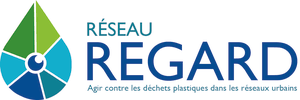- Water cycle in industry
- Climate change
- Drinking water & Sanitation
- Circular economy & Waste
- Reducing use and abstraction: cutting water consumption and loss
30 March: International Day of Zero Waste

Since 2022, we have been celebrating International Zero Waste Day on 30 March every year. This year, it is highlighting the ‘zero waste’ approach in the textile industry.
The textile industry is one of the most polluting in the world, with a significant environmental impact, due to its massive use of water, energy and chemicals. Faced with climate change, it is not the only one having to take on new environmental challenges, notably by adopting more sustainable practices to reduce not only its waste production, but also its water footprint.
With this in mind, the International Office for Water supports industries in the implementation of innovative projects for the preservation of water resources. Like other sectors, the food industry must also rethink its practices to adapt to the effects of climate change and contribute to a sustainable future.
With ZEUS, the zero liquid discharge project in the food industry, OiEau and its partners, INSA Toulouse and Chemdoc Water Technologies, intend to reduce water consumption and enable the reuse of effluents after treatment at the MONIN factory in Bourges. The process implemented in the factory in Bourges is intended to be replicated, first in other factories of the group, then within different agri-food industries, with a view to dissemination.
Preventing and adapting to climate change, particularly through zero waste, is essential at all levels, whether individual, community, national or international actions.
The REGARD network is a network that supports local authorities in the fight against plastic macro-waste from sanitation systems in the Loire-Bretagne basin. It aims to promote innovation, the exchange of experiences and the dissemination of good practices in the fight against plastic macro-waste from sanitation systems. It is aimed at local authorities' stormwater, sanitation and urban ecology departments, as well as managers of natural areas.
Knowledge is essential for making informed decisions and concrete actions. Thus, the INBO, for which OiEau provides the technical secretariat, coordinates, among other things, the publication and distribution of thematic manuals.
In response to the alarming fact that 80% of marine waste comes from land-based activities, a manual on the transfer of waste and plastics into aquatic environments has been created by INBO, with the support of the OFB and in partnership with the PFD, the ISWA and the AFD. It raises awareness and provides information not only to those involved in the protection of aquatic ecosystems and waste management, but also to a wider audience, so that they can make informed decisions and take concrete action together.
Meeting these challenges requires our societies to change not only our practices and customs, but also the jobs of professionals in the water, sanitation and circular economy sectors.
Water and waste share many similarities. The management of drinking water, sanitation and waste is part of environmental management as a whole. These sectors constitute key public service competencies and form an integral part of our daily lives. At the International Office for Water, waste and circular economy professionals have the opportunity to follow training courses in Limoges, on site or remotely, covering topics such as collection, storage, treatment and service management.




